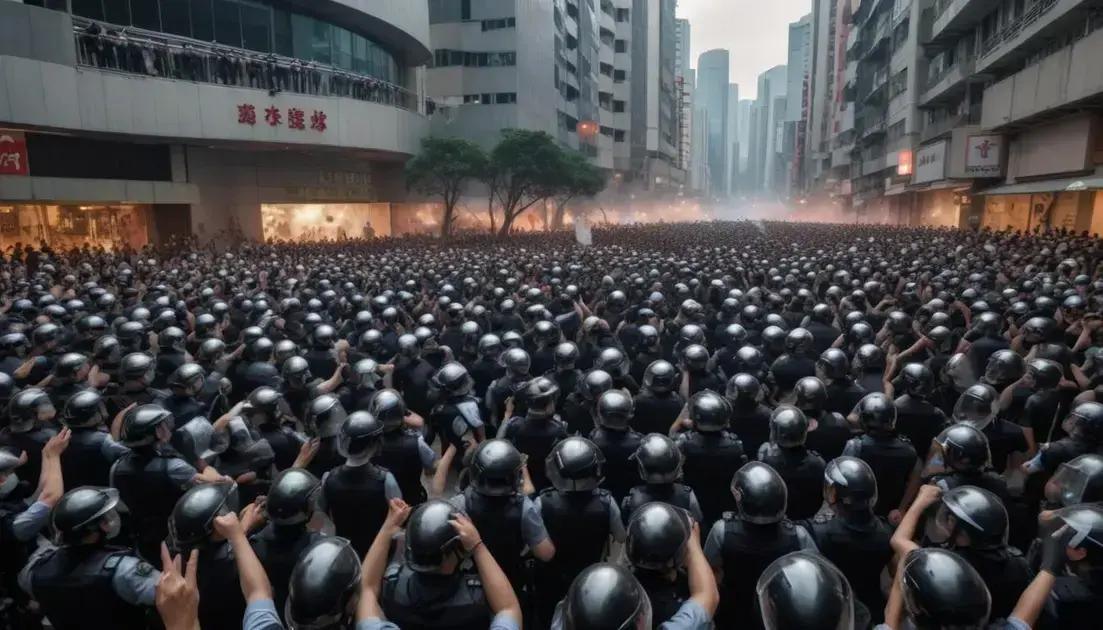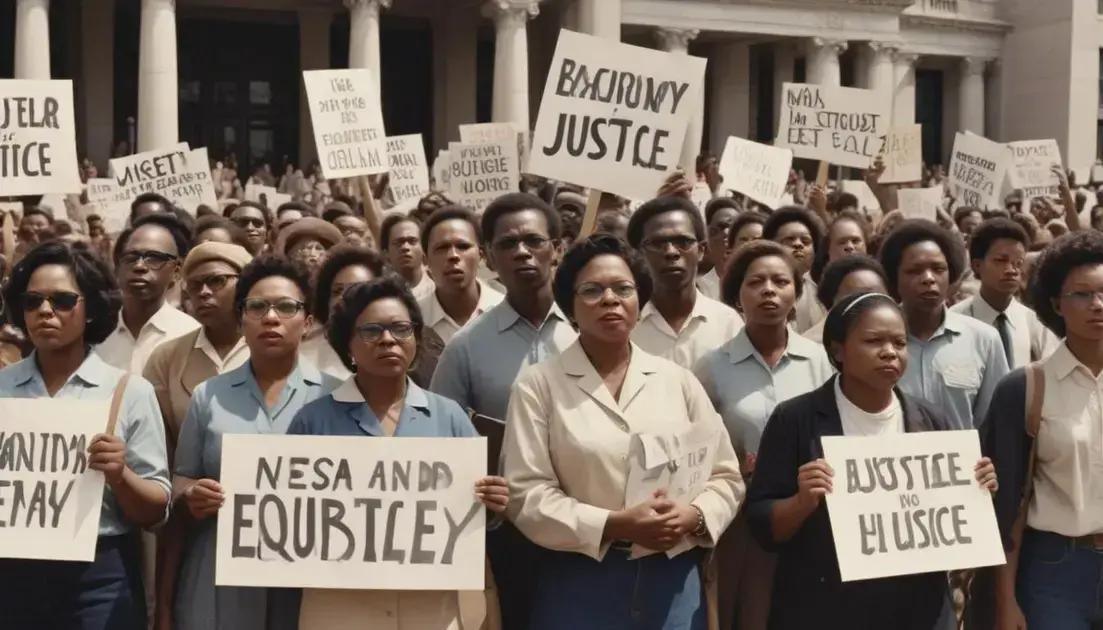
National Security Law: End of Freedoms in Hong Kong?
The National Security Law in Hong Kong has dramatically impacted freedoms, leading to significant public concern and international condemnation. It has suppressed the right to protest and restricted press freedom, igniting strong reactions from local citizens and global leaders alike. The law’s future implications raise questions about human rights in the region and its influence on international relations. Activism has shifted online, and many hope for continued solidarity in a struggle for freedom against increasing authoritarianism.
The National Security Law in Hong Kong has raised eyebrows worldwide. How does it impact fundamental freedoms and the daily life of its citizens?
Impact on freedoms
The impact on freedoms in Hong Kong due to the National Security Law is profound. Many people feel less secure expressing opinions. Protests that used to be common have significantly dropped. Activists face serious risks, including arrest for speaking out.
Suppression of Right to Protest
With the new law, gatherings and speeches are now closely monitored. Police can disperse crowds easily, creating a climate of fear. This change has made many hesitate to join protests or voice dissent.
Freedom of the Press
Journalists now work under constant tension. The law restricts what they can report, fearing legal action. As a result, some have chosen to leave Hong Kong. Others might self-censor to avoid trouble, which hurts truthful reporting.
Impact on Everyday Life
For ordinary citizens, the change is alarming. People worry about discussing politics even with friends and family. They might feel safer keeping opinions private rather than risking a penalty. This shift has altered the public’s relationship with the government.
In summary, the National Security Law has changed how people view their freedoms. The fear of repercussions limits expression, and many feel their rights are slipping away.
Public response
The public response to the National Security Law has been varied. Many have expressed anger and fear. Protests arose, showing people’s desire for freedom. Social media buzzed with discussions on rights and choices.
Social Media Activism
People took to platforms like Twitter and Facebook to voice their concerns. Hashtags like #FreeHongKong spread quickly. Online movements gained momentum, inspiring others to speak up for their rights.
Emergence of New Groups
New activist groups have formed, aiming to protect civil liberties. These organizations support those impacted by the law. They provide resources and a platform for voicing opinions safely.
Support from International Communities
Many countries have condemned the law. Governments and organizations worldwide have made statements against it. This international support shows solidarity with Hong Kong citizens.
Despite the risks, many people refuse to stay silent. The spirit of activism remains strong in the hearts of those who value freedom. They continue to seek ways to make their voices heard.
International reactions
International reactions to the National Security Law have been strong and varied. Many countries voiced their concerns publicly. Leaders condemned the actions taken by China regarding Hong Kong.
Government Statements
Several governments issued statements against the law. They highlighted the importance of protecting human rights. These statements show solidarity with the people of Hong Kong.
Sanctions and Diplomatic Actions
In response, some nations have imposed sanctions on Chinese officials. These measures are aimed at holding them accountable. Countries want to demonstrate that such actions can’t go unchecked.
Support from International Organizations
Organizations like the United Nations have criticized the law. They emphasize that it undermines freedoms. Various human rights groups are also speaking out, urging action and awareness.
The worldwide reaction underscores the importance of freedoms. It reflects a shared concern for human rights across the globe. Citizens and leaders are paying attention to the developments in Hong Kong.
Future implications
The future implications of the National Security Law are significant. Many worry about the long-term effects on freedoms. People are concerned that more restrictions may follow.
Chilling Effect on Activism
With the law in place, activists might feel less safe speaking out. This could lead to fewer protests and less public discussion. The fear of repercussions makes it riskier to advocate for change.
Impact on Youth and Education
Young people in Hong Kong are particularly affected. They face challenges learning about their rights in schools. Fear and misinformation may lead to confusion about what they can express.
Shift in International Relations
The law might also change how countries view China. Some nations may rethink their relationships and trade policies. This could impact global politics and economics as well.
Overall, the future is uncertain for Hong Kong. Many hope for positive change while recognizing the challenges ahead. The balance between security and freedom will continue to be a pressing issue.
Conclusion
In summary, the National Security Law represents a turning point for Hong Kong. It has led to significant changes in how people express their freedoms. Many worry about the long-term effects on rights and daily life.
Public reaction has been strong with protests and online activism. The support from international communities highlights the global concern for human rights. As we look to the future, it’s clear that the balance between security and freedom is critical.
Moving forward, it’s important to stay informed about how this situation evolves. The implications of this law will shape not just Hong Kong, but also the world. Everyone has a role in championing freedoms and human rights.


